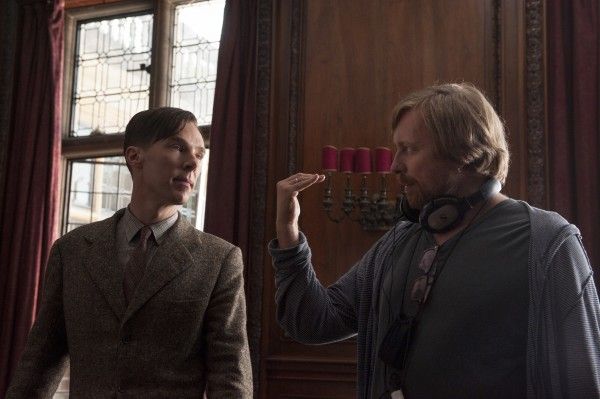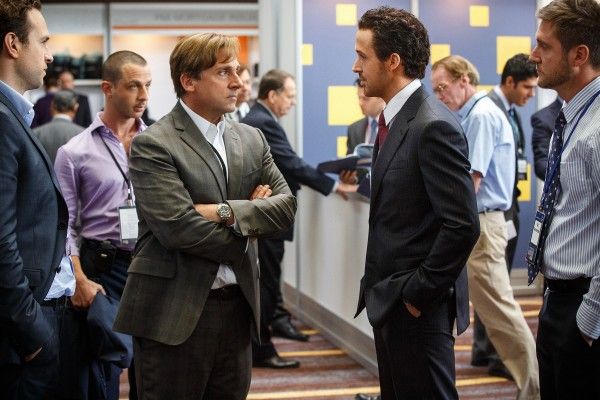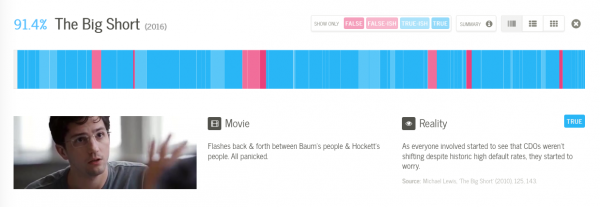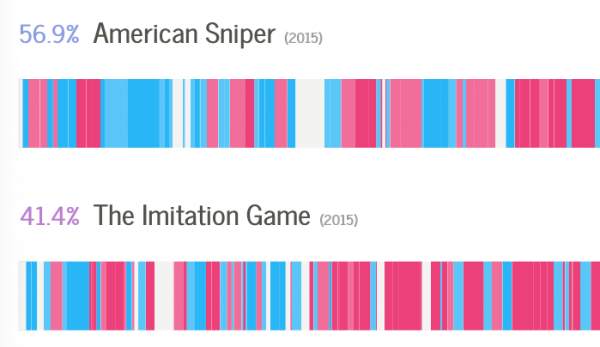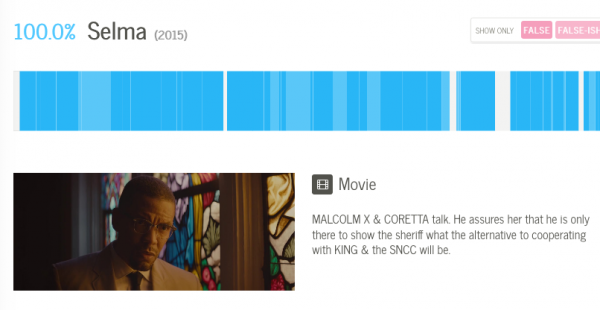One of the most consistent selling points of modern dramas is wrapped up in five words: based on a true story. It's been a common bit of text in trailers since the 1990s, and even before that, text and even intros suggesting that movies are based on actual facts have been part of the cinema since its inception. The great Anthony Mann opened his exhilarating noir T-Men with a short, informative bit about the actual job of men who work for the Treasury Department; Phil Karlson did something similar with The Phenix City Story.
Today, however, the factuality, or lack thereof, is just taken as assumed. Unless one has read a book on Alan Turing, the truthfulness of The Imitation Game doesn't really matter in the act of watching and understanding the movie. And, if we're being honest, it's better that way. Historical fiction is not something new and those who insist on total truth will always, and I mean always, be disappointed. For those people, there is now a very interesting infographic over at Information is Beautiful that charts the truthfulness, scene for scene, of some of the last few years' most well-known "true stories" from Hollywood. That means Selma, The Big Short, American Sniper, Captain Phillips, and the aforementioned Imitation Game, along with a few more, and the results are tremendously fascinating.
Selma comes out in the lead, with 100% honesty in the narrative, if you allow for a little flexibility. One of the great little elements of the infographic is that you can toggle to decide if you want the movies to be measured strictly or liberally, and even when confined to strict guidelines, Ava DuVernay's brilliant drama comes up as over 80% truthful in its telling. In comparison, American Sniper, another very good movie, comes in at under 50% even when we're being flexible; under "Only the Truth," that number drops to under 30%.
It's even more striking to look at these movies scene for scene. The Big Short, which rates nearly as high as Selma, is proven to be a little less than honest with the scenes where Steve Carrell's character and his cadre of investors speak with a pair of risible, empty-headed mortgage brokers. Much of the rest of the movie is, unfortunately, very true. There are similar numbers for Ron Howard's Rush and Steven Spielberg's quite excellent Bridge of Spies.
This is all well and good and quite informative but as someone who could not care less about the truth in films, which can never be 100% correct, it's a bit of a trifle. Three of the best movies of this year - Neruda, Sully, and the shattering Jackie - are works of historical fiction that allow the directors, Pablo Larrain and Clint Eastwood, to work out personal feelings that connect them to their subjects while also reflecting the modern day. To hold movies up to fact-checkers, to the vague and unyielding concept of honesty, is a foolish endeavor and has very little, if any, bearing on a movie's value or substance. Still, as a bit of time-wasting, this is certainly quite a lot of fun.


